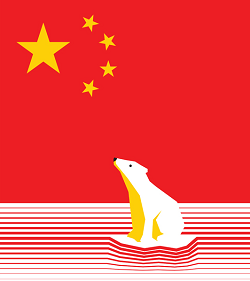Kasper Sulkjær Andersen: China's Climate Policy
 Master's thesis, Department of Political Science, Faculty of Social Sciences, University of Copenhagen, 2013
Master's thesis, Department of Political Science, Faculty of Social Sciences, University of Copenhagen, 2013China's Climate Policy
- An Interest-Based Explanation
Author: Kasper Sulkjær Andersen
Academic advisor: Peter Nedergaard
> 1.0 Introduction – Global Climate Change and The Middle Kingdom
1.1 China’s Climate Policy and Why Should We Care?
1.2 Research Question
1.2.1 Defining Central Concepts and Explicating Underlying Assumptions
1.3 Delineation
1.3.1 Temporal Delineation
1.3.2 Spatial Delineation
1.4 Theoretical Take on China’s Climate Policy
1.4.1 Analytical Strategy
1.4.2 Argument
1.5 Structure
> 2.0 Theory
2.1 Interest-Based Theory
2.1.1 Model A: The Unitary Actor Model
2.1.2 Limitations of The Unitary Actor Model
2.2 Model B: Domestic Politics Model
2.2.1 Fragmented Authoritarianism
2.2.2 Limitations of the Domestic Politics Model
2.3 The (Deliberate) Omission of Classic Game-Theory
2.4 Explanatory Model – Combining the Two Theoretical Models
> 3.0 Methodology
3.1 Philosophy of Science
3.1.1 Ontology and Epistemology – China’s Climate Policy as an Objective Phenomenon
3.2 Technical Aspects of the Analysis
3.2.1 Research Design and Strategy
3.2.2 Data
3.2.3 Operationalisation and Definition of Central Concepts
> 4.0 The Dependent Variable – How Ambitious Is China’s Climate Policy?
4.1 How Ambitious Is China’s Climate Policy?
> 5.0 Analysis – Explaining China’s Climate Policy
5.1 Direct Causation: Gauging China’s Aggregated National Interest
5.1.1 X1: China’s Level of Climate Vulnerability
5.1.2 X2: China’s Abatement Costs
5.1.3 Cost-Benefit Analysis – Explaining The Shift In China’s Climate Policy
5.1.4 Inferring Causality Between X And Y
5.1.5 Summary – Direct Causality
5.2 Indirect Causation – China’s Climate Policy Environment
5.2.1 X To Z: The Political Impact of China’s Aggregated National Interest
5.2.2 Z To Y: China’s Climate Policy-Making Process – The Configuration of Interests and Power
5.2.3 China’s Climate Policy Environment – Conducive To Climate Proaction?
5.2.4 Summary – Indirect Causality
> 6.0 Conclusion
6.1 Explaining An Increasingly Ambitious Chinese Climate Policy
6.2 Assessment
6.2.1 Methodology
6.2.2 Theory
> 7.0 References
> 8.0 Appendices
Appendix A – Tracing China’s Climate Policy
Appendix B - Calculating The Economic Costs of Extreme Weather Events
Appendix C – China’s Environmental Crisis
Appendix D – Interview-guide
> Notes
Abstract:
China’s domestic climate policy has changed markedly over the course of the last decade. In the period under consideration (2001-2012) in the present dissertation, China’s domestic climate policy has shifted towards exhibiting an increasingly higher degree of climate policy proaction. This policy development seems paradoxical given that China’s international stance on climate change has remained reactive i.e. centred on safeguarding Chinese sovereignty, invoking the climate responsibility of developed countries and advocating for an increase in the flow of Western climate finance. The present dissertation argues that China’s increasingly ambitious domestic climate policy can be explained as the result of shifting Chinese interests. Global climate change is essentially about economic interests, which is a particularly salient assertion from the perspective of China since changing climatic conditions have the potential to adversely impact core Chinese economic interests. Through the utilisation of interest-based theory, the present dissertation finds that taking a proactive stance on climate change can be considered a rational response to changing climatic conditions. However, and equally important, the present dissertation also finds that China’s climate policy response is constrained by a restrictive domestic policy environment, thus resulting in an altogether sub-optimal policy outcome.